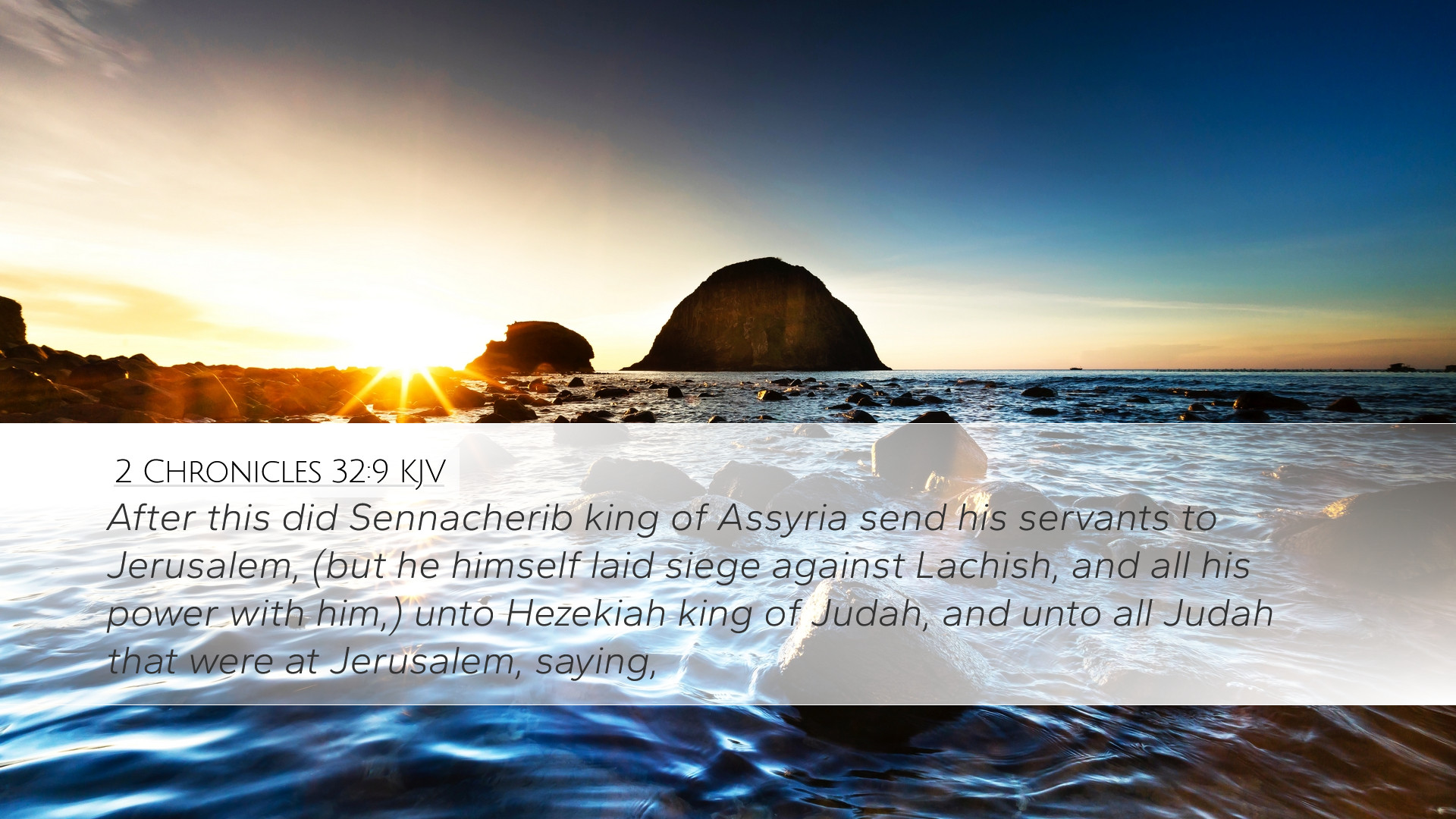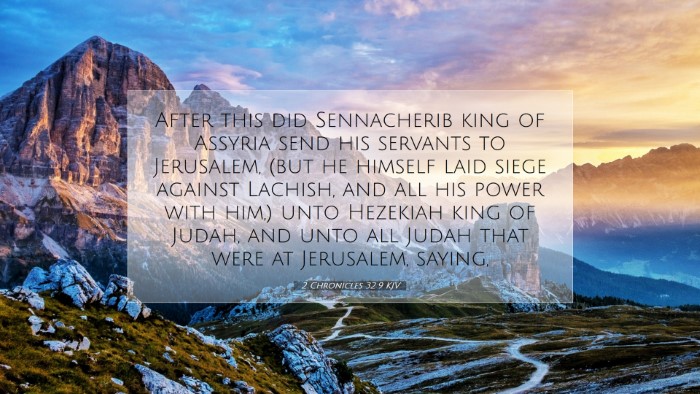Commentary on 2 Chronicles 32:9
In 2 Chronicles 32:9, we find an account of the Assyrian King Sennacherib's challenge to Judah and its king, Hezekiah. This verse situates the narrative within a larger context of political arrogance and spiritual resilience that is fundamentally significant for understanding God's sovereignty in the face of human opposition.
Context and Historical Background
The context surrounding 2 Chronicles 32:9 is crucial for a deeper understanding of its significance. Sennacherib, the Assyrian king, was known for his brutal conquests and the destruction of various cities in the Near East. As he laid siege to Jerusalem, he sent messengers to taunt Hezekiah and instill fear among the people.
Assyrian Conquests
Sennacherib boasted of his victories over other nations, and his tactics included psychological warfare aimed at demoralizing those he intended to conquer. The account in 2 Chronicles serves to highlight the conflict between earthly powers and the divine authority of God.
Textual Analysis
The verse reads:
“After this did Sennacherib king of Assyria send his servants to Jerusalem, but he himself laid siege against Lachish and all his power with him.”
This verse marks a transition in the narrative; we are told of Sennacherib’s strategic military maneuvers while he simultaneously undermines the faith of the people of Judah through threats and deceptions.
Theological Implications
Several key themes emerge from this text:
- The Challenge to Faith: Hezekiah's leadership is tested as the people face external threats. The response to such challenges often reflects the inner faith and spiritual readiness of a community. As commented by Matthew Henry, "Faith is made stronger in the face of opposition."
- The Sovereignty of God: Despite the might of Sennacherib, God remains sovereign. Albert Barnes emphasizes that divine intervention becomes apparent when human efforts fail. The narrative invites readers to reflect on God's ultimate control over human affairs.
- Human Pride vs. Divine Authority: Sennacherib's pride is a precursor to his downfall. Adam Clarke notes that the Assyrian king's arrogance leads him to think he will triumph over God’s chosen people, a reminder of the peril of underestimating divine power.
Pastoral Reflections
For pastors and church leaders, 2 Chronicles 32:9 offers important lessons on resiliency in faith. Just as Hezekiah faced an overwhelming crisis, contemporary leaders must encourage their congregations to trust God amidst personal and communal challenges.
Encouragement in Testing Times
Reflecting on the assurance that God is with His people, sermons can emphasize that trials serve to strengthen faith. In times of distress, like Hezekiah’s, every believer is called to redirect focus from the enormity of the challenge to the greatness of God.
Application for Theologians and Scholars
Theological discussion around this verse can expand into areas such as intertextuality and the nature of divine providence. Scholars are invited to explore how this narrative contrasts with other historical accounts of Assyrian confrontations.
Historical Criticism
Examining the sources and motivations behind the account of Sennacherib’s campaign against Judah invites deeper questions about how history is recorded in theological texts. The use of hyperbole in ancient accounts, as discussed by Albert Barnes, could serve as a topic of exploration for understanding ancient Near Eastern literature.
Reflection on Divine Justice
Moreover, theological implications regarding divine justice versus human wrongdoing can be drawn from this conflict. The implications of God's judgment against nations that defy His ways emerge as an everlasting truth.
Conclusion
In summary, 2 Chronicles 32:9 acts as a poignant reminder of the physical and spiritual battles that believers face. It calls attention to the importance of unwavering faith and reliance on God’s power, pushing back against the spirit of fear that our modern world often embodies. The combination of historical context, theological reflection, and pastoral application renders this verse a rich resource for examination and application in both teaching and practice.


